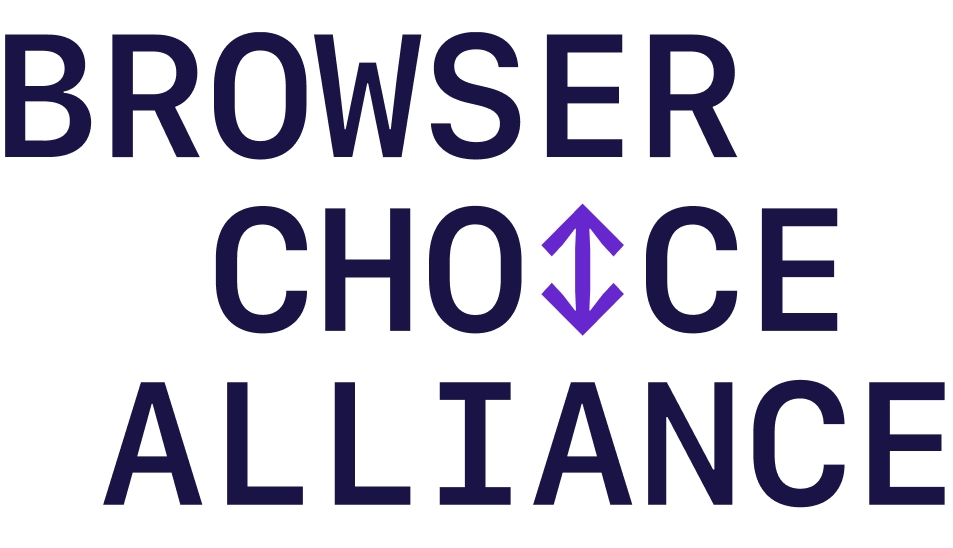New Group Calls on The European Commission to Include Microsoft Edge as a Gatekeeper under the Digital Markets Act
Today, browser developers including Opera, Vivaldi, Google Chrome, Wavebox, and Waterfox announce the launch of the Browser Choice Alliance. This group will advocate for consumers’ right to choose, keep, and use their preferred browser on Windows without that choice being undermined.
Through dark patterns, technical roadblocks and deception, Microsoft prevents consumers from finding and using the browser they want and setting it as their preferred default on Windows PCs. These actions affect not just browser developers, but the entire web ecosystem.
The Browser Choice Alliance is calling for urgent intervention from regulators across the world to address this, and defend consumers’ right to choose. For example, the group is calling on the European Commission to list Microsoft’s Edge as “gatekeeper” under the Digital Markets Act (DMA).
There has been a rising chorus of complaints about Microsoft’s practices. In July 2024, Opera filed an appeal against the European Commission’s decision not to designate Microsoft Edge as a gatekeeper under the Digital Markets Act, and several browsers supported that appeal publicly. This builds on Vivaldi’s 2023 open letter on Microsoft’s tactics in relation to the DMA and reporting by multiple media outlets.
The importance of Internet browsers
Browsers are the gateway to the Internet, and they also enable a wide range of other important services – from AI to productivity tools and more. These services directly impact many lives and livelihoods globally as part of the greater Internet economy.
Particularly in education and enterprise, the use of browsers on desktop computers remains and will likely continue to be a fundamental part of user experiences for years to come. That’s why promoting fair competition on browsers is essential: as technologies continue to evolve, competition ensures innovation and choice for consumers.
Microsoft’s tactics
Windows is the leading desktop operating system, with over 70% market share globally according to StatCounter. This power has allowed Microsoft to restrict the ability of rival software to compete on Windows by creating deceptive restrictions against competitors.
At every turn, Microsoft uses dark patterns, technical roadblocks, and deception to stop consumers accessing the browser they want or setting it as default. This includes:
- Creating hurdles for downloading a different browser;
- Changing users’ default settings back to Edge during regular updates;
- Force-opening links in Microsoft’s own services (Teams/ Outlook etc) into Edge or Bing;
- Coercive messaging around browser choice, encouraging users to “restore Microsoft recommended browser settings”.
Krystian Kolondra, EVP Browsers, Opera: “For almost 30 years, Opera has been defending open standards and fair access to the technology that benefits our users. User choice is an integral part of a free and open web, and this freedom must be preserved. That’s why we are adding our voice to the Browser Choice Alliance.”
Jon von Tetzchner, CEO and Co-founder, Vivaldi: “For a long time, Vivaldi has publicly called out Microsoft for its dirty tricks to undermine consumer choice. Independent browsers like us simply cannot compete fairly with Edge when it is so heavily preferenced in Windows. Regulators need to intervene urgently.”
Parisa Tabriz, VP and GM, Google Chrome Browser: “Consumers have many choices when it comes to browsers. When they choose to download a browser, their choice should be respected. We’re proud to be part of a group advocating for consumer choice and respect.”
Susan Davies, Co-Founder, Wavebox: “Enterprise and business users pay money to use Wavebox because of its productivity features. But Microsoft’s tactics consistently undermine users’ preferences, for example by setting links to auto-open in Edge and reversing default settings during updates.”
Alex Kontos, Founder, BrowserWorks (Waterfox): “Microsoft’s practices have made it difficult for privacy-conscious users to discover and choose alternative browsers like Waterfox, effectively limiting consumer choice. By joining this industry alliance, we’re standing up for the fundamental principles that have made the web great – openness, competition, and user empowerment.”
In addition to the named members, there are other companies who share the concerns of the Browser Choice Alliance but who did not feel they could make their views public due to fear of retaliation from Microsoft whether through public smear campaigns or less public interference with their businesses.
